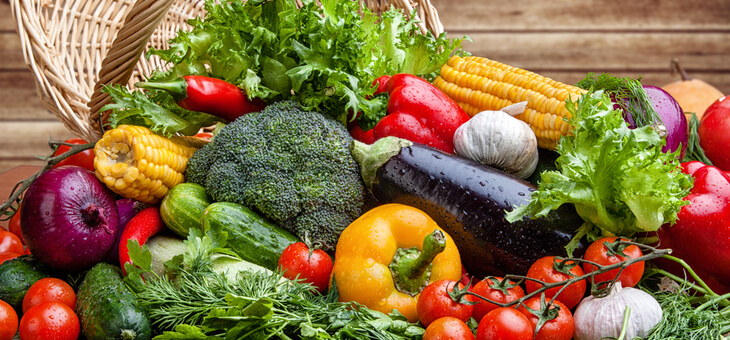A recent Harvard University study has found that eating certain foods may help prevent cognitive decline.
The study, published in the journal Neurology, looked at the health data and self-reported dietary information of more than 77,000 men and women in the United States over a 20-year period. The average age at the start was 51 for men and 48 for women.
The study authors found that those who consumed the most flavonoids were 20 per cent less likely to report having trouble with thinking and memory than those who consumed the fewest flavonoids.
Flavonoids are a diverse group of phytonutrients (plant chemicals) found naturally in many fruits, vegetables and herbs. Along with carotenoids, they are responsible for the vivid colours in fruits and vegetables.
Flavonoids have beneficial anti-inflammatory effects; they protect your cells from oxidative damage that can lead to disease. In simple terms, they help your body function efficiently while protecting it against everyday toxins and stressors.
They are also powerful antioxidant agents. Antioxidants help your body fight off potentially harmful molecules in the body.
If these harmful molecules such as allergens, germs, toxins and other irritants are left to do what they please, they may trigger inflammation.
Even though inflammation is a natural immune response, the symptoms can be uncomfortable and painful.
“There is mounting evidence suggesting flavonoids are powerhouses when it comes to preventing your thinking skills from declining as you get older,” says study co-author Dr Walter Willett, a professor of epidemiology and nutrition at the Harvard T. H. Chan School of Public Health.
The study found that even people who adopted a flavonoid-rich diet in later life still saw some cognitive benefits, showing that it’s never too late to start.
Here are the foods that may help protect your brain from age-related cognitive decline.
Brussels sprouts
Brussels sprouts are high in nutrients, rich in antioxidants and contain beta-carotene, vitamins C and K, folate and fibre. Just don’t boil them for an age. Instead, sub them in any time you’d ordinarily opt for leafy greens and cabbage. Shred raw into salads, roast alongside root veg and braise with butter, lemon and peas.
Blueberries
The study participants who regularly ate berries stayed sharper for longer.
Because of the blood-brain barrier, foods that protect the brain will also protect the heart. Research shows that polyphenols found in berries can help manage blood pressure levels and keep your blood vessels healthy and flexible, promoting good circulation.
Strawberries
These delicious berries provide vitamins C and K, potassium, magnesium, fibre and prebiotics (carbohydrates that promote a healthy human gut).
There is also some evidence that foods high in anthocyanins – a type of flavonoid found mostly in strawberries and blueberries – can help you keep weight off.
Remember, you get the same health benefits from any frozen berries as you do from fresh ones.
Cauliflower
The nutrition profile of cauliflower is quite impressive. It’s very low in calories yet high in vitamins. In fact, cauliflower contains some of almost every vitamin and mineral that your body needs. It’s also high in fibre and vitamin C, a good source of folate and rich in antioxidants.
Cauliflower is a popular alternative to mashed potatoes and rice, and it can even be made into a pizza base.
Cooked and raw spinach
One study, reported in the Neurology journal, found that eating one portion of spinach a day – or other leafy greens such as kale, asparagus, chard, lettuce and rocket – can help slow down, and even prevent, the onset of dementia in later life.
In fact, those in the study who ate around 40g raw or 120g cooked greens daily, were found to have far healthier brains, with better memory, thinking speed and visual reasoning.
Sweet potato
Purple sweet potatoes are high in anthocyanins while the orange varieties are packed full of beta-carotene. Both are great sources of vitamins C and B6, potassium and fibre.
Pumpkin
This vegie is rich in potassium, and it’s also a source of protein, beta-carotene, lutein, vitamins C and B6, magnesium, potassium and fibre. If you’re diabetic, pumpkin has a low glycaemic index and load, and it contains polysaccharides, a type of indigestible fibre that in animal studies has shown to help prevent blood sugar from going up after a meal.
Pumpkin is a great winter vegie, its natural sweetness is intensified by roasting, and its dense texture works well in casseroles, soups and stews.
Cooked carrots
One study from the Journal of Agricultural and Food Chemistry found that boiled carrots have a 14 per cent higher concentration of carotenoids. Be aware that pan-frying caused a 13 per cent decrease in carotenoids.
Carrots also are a good source of fibre, along with potassium and vitamin C.
Pumpkin seeds
Not only do pumpkin seeds contain the fatty acids omega-3 and omega-6, but they’re also a rich source of magnesium and zinc. Zinc has many benefits to the body, including proper functioning of the immune and digestive systems, and it’s also linked to improved learning and better memory.
How many of these foods do you get in your diet? Which are your favourites? Let us know in the comments section below.
Also read: Foods you should eat in your 50s, 60s and beyond
Disclaimer: This article contains general information about health issues and is not advice. For health advice, consult your medical practitioner.

